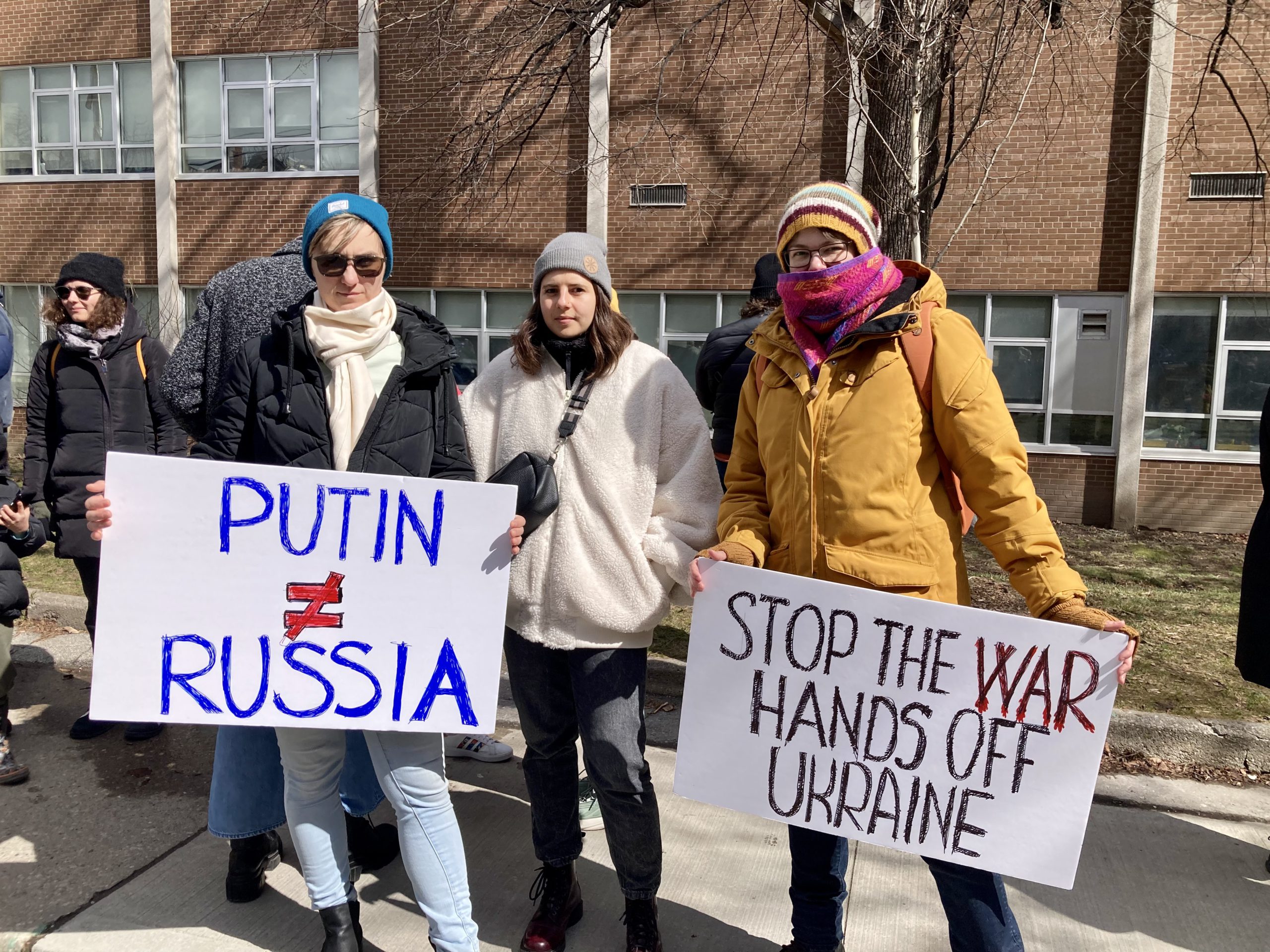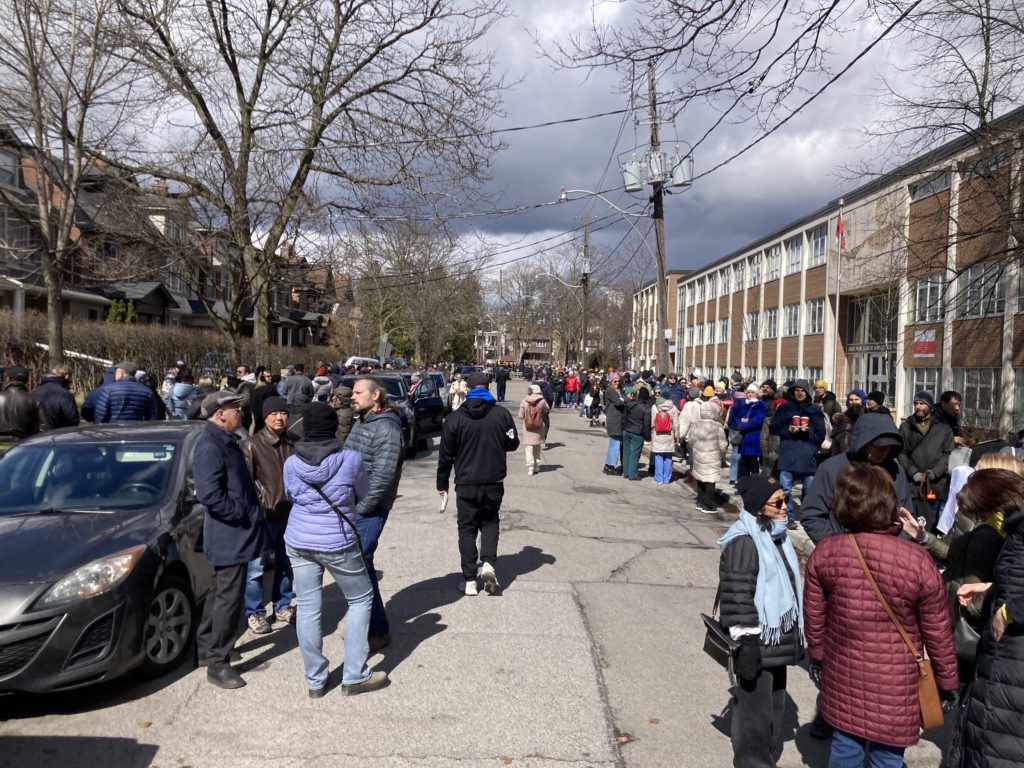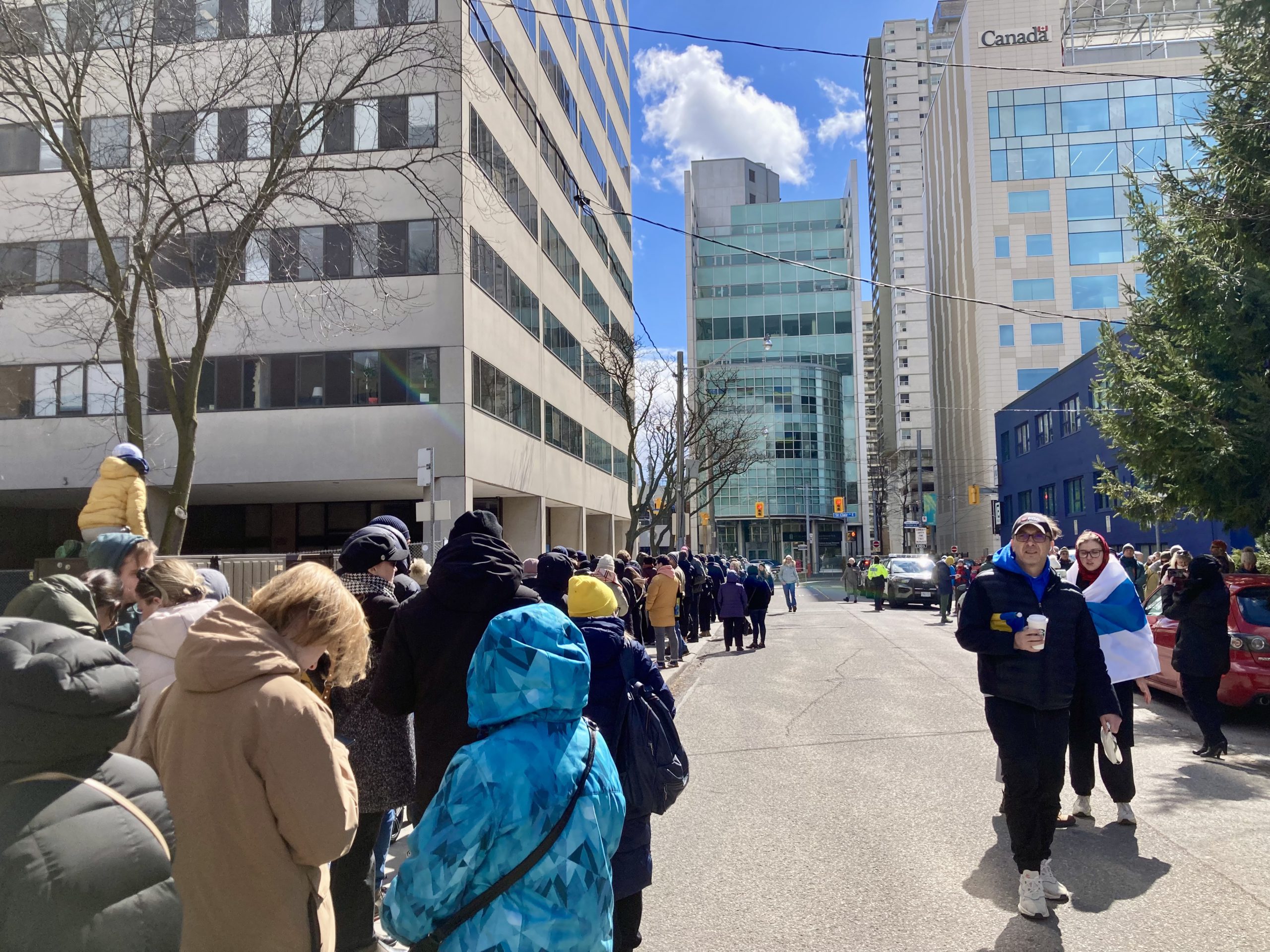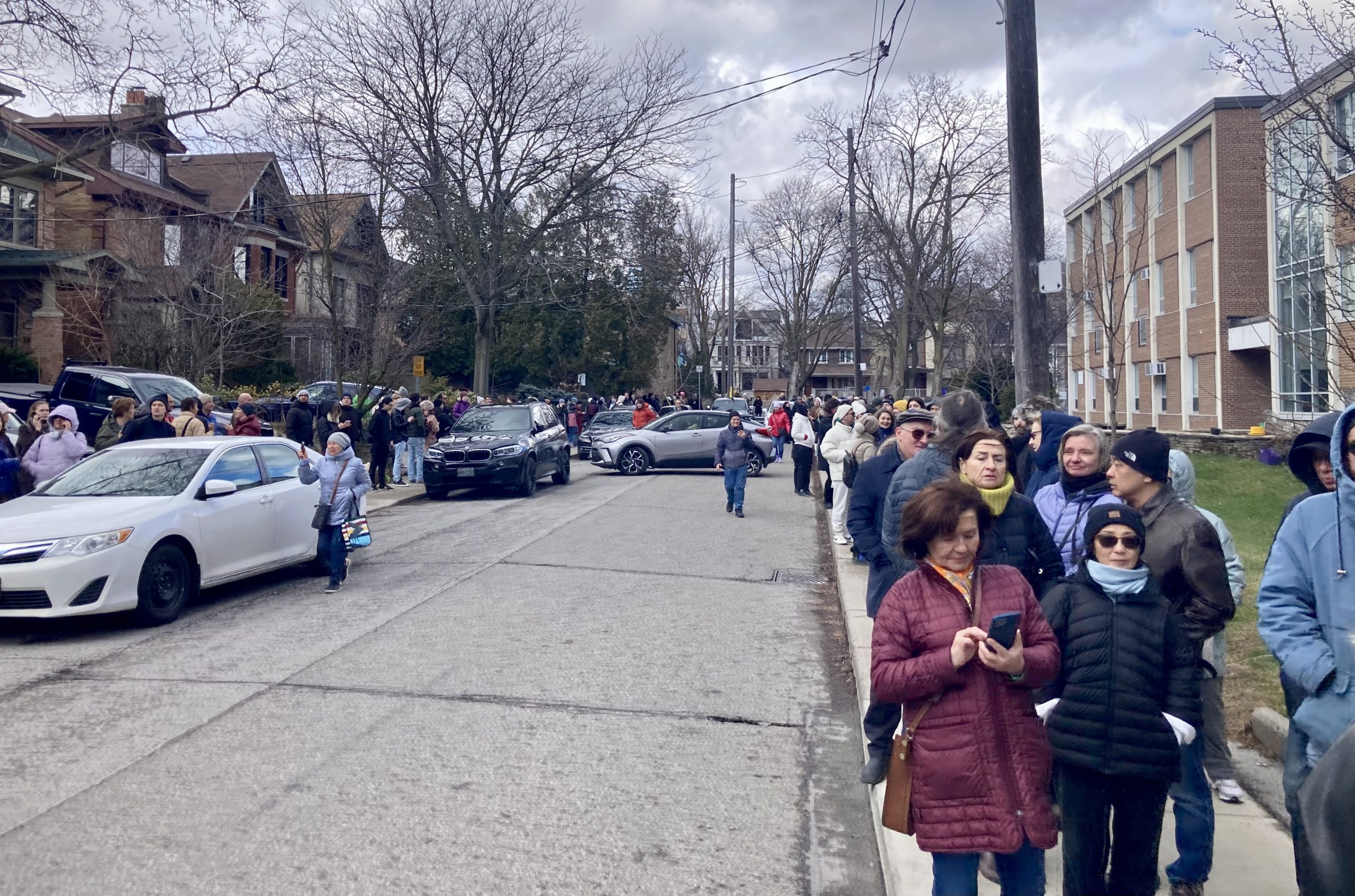On Sunday March 17, thousands of Torontonians celebrated St Patrick’s Day, dressing up in green, joining parades, and going out for drinks. But for Russians all over the world, March 17 marked a more sombre occasion — defending their voices in the presidential election, now taking place every six years.
Corruption and fraud in Russia have fostered a system that uses elections to give the dictatorship a thin veil of legality. The Russian government has announced a landslide victory for Putin — 87 per cent. Political Scientist Ekaterina Shulman calls these elections “illegal from start to finish,” from exerting pressure on voters to introducing changes to the constitution allowing Putin to run for a third term in a row.
The opposition in Russia united behind a strategy called Noon Against Putin, considered by many as Russian Opposition Leader Alexei Navalny’s “last testament.”
Since his murder in prison on Feb. 16, Navalny’s widow, Yulia Navalnaya, has pledged to continue her husband’s work. She urged supporters to come to the polling station on March 17 at 12:00 p.m. “This will help millions of people to see their allies and realize we are not alone, we are surrounded by people who also oppose the war and oppose corruption,” she said.
“What you do after is up to you,” added Navalnaya. “You could vote for any candidate except Putin. You can ruin your ballot, you can write Navalny on it, or if you don’t see the point in voting at all, you can just come and stand at the polling station, then turn around and go home […] The most important thing is to show up.”
In Toronto, hundreds of voters formed a line outside the office of the Russian Consulate General, located on Free Ukraine Street. The street was renamed following the Russian invasion of Ukraine in March 2022. The consulate is the only polling station in Toronto, where Russian citizens can vote.
Yaroslava, who has lived in Toronto since 1998, says she has never seen her compatriots form a gathering this big. “The only time we see a lot of Russians is when we go for Easter to the Russian Orthodox church,” she says. However, she notes that the numbers are still “not as many” compared to the Russians who stand in line to the voting booth.
At the consulate, the space constraints allow for only five people to enter at a time. Most voters wait for over seven hours to enter the building, and as the weather gets colder, a system is set up: some leave to warm up, get tea or coffee for their neighbours, while others hold their place in the line.
Mikhail immigrated to Canada less than a year ago; the 39-year old waits in line with a bitter understanding that his vote won’t change the result of the elections.
“I have no hopes from this particular vote, none at all,” he says. “But on the other hand, why not come and make your small contribution?”
Anna, who is also standing in line, wants to make it clear that Russia doesn’t equal Putin. “The most important thing is to not give up on any actions, no matter how likely success is. In any case, throwing your hands in the air and doing nothing is probably a bad choice, even if success is unlikely,” she says.
The crowd on Free Ukraine Street feels united in their political views. Some wear blue and white — the colours of the Russian anti-war flag. Others carry signs.
Nikita, a 26-year old voter, came with his parents. His dad wears the white-blue-white flag over his jacket. “It is insanely pleasant to see a lot of free compatriots who are here and in every city in the world,” says Nikita. “That’s why I am here. To see how many of us there actually are and to ensure there is a hope and there is a future.”
Mikhail says that being in the crowd makes him feel like he is a part of a like-minded community. “From what I see and hear, I’m glad to know I’m not alone with [my] thoughts. It seems that the majority agrees,” he says.
Anna, too, is certain the majority of people resolutely oppose Putin. “I think that if someone in the middle of the crowd now shouted, ‘Putin is our president,’ the reaction of those around would be interesting,” she says with a smile.
However, there are still some who choose not to challenge Russian leadership. Yaroslava says, “I am not against Putin; I support Russia.” She reminisces of a more direct work culture in Moscow, and in light of the housing crisis in Toronto, sees a potential future for herself and her children in Russia.
Fifty-year old Marina came to the protest with her 83-year-old mother, Lyuba. Both of them have lived in Canada for 30 years and note how the impression of Russians has changed.
“When I came to Canada 30 years ago, I wasn’t ashamed that I was Russian; everything was fine. Now, I’m afraid to say I’m Russian sometimes. I actually say I am Canadian,” Marina says.
“Now being Russian is almost some kind of stigma. It doesn’t have anything good to do with it. Of course, I want to change that,” she adds.
Marina runs an organization called Better Future for All, which supports Ukrainian newcomers in Canada. “We met them in the hotels where they lived, helped [them] find work, [helped] with donations. Now we have a social club for Ukrainian ladies age 60 and up called ‘Posiden’ki’, designed to combat loneliness and social isolation among Ukrainian newcomers.
“Now I just understand that there is no other way out. You need to support the side that fights evil by any means,” she says.
Nikita thinks the way for change is through protest. “We should exercise our right for free speech because we have the privilege here, unlike people in Russia. We should come here to the consulate and show our opinions […] and stay hopeful for the future of Russia and never give up.”
For others, expressing hope is much harder. “There are no hopes, only dreams,” Valeria says with a laugh. She shivers from the cold but does not leave the line.
Valeria has only been in Canada for a year and a half, but her return to Russia depends on whether the situation there changes. Until that happens, she wants to “take part in some way” in the struggle for a democratic Russia.
Mikhail suggests that the best way to ensure the freedom of Russia is “to help people who want to leave in one way or another,” either through the sharing of information or by providing donations “We need to at least preserve these people. If they all go to jail, forgive my pessimism, well, I don’t know how much that will speed up the process,” says Mikhail.
Alexei, on the other hand, shares that he has very little hope for the political climate in Russia to change.
“I lost all my faith in Russia,” he says. But he, too, stays, despite the cold, to cast his vote against Putin, and I see him in line five hours later, still smiling.






Fantastic article! Nice work!